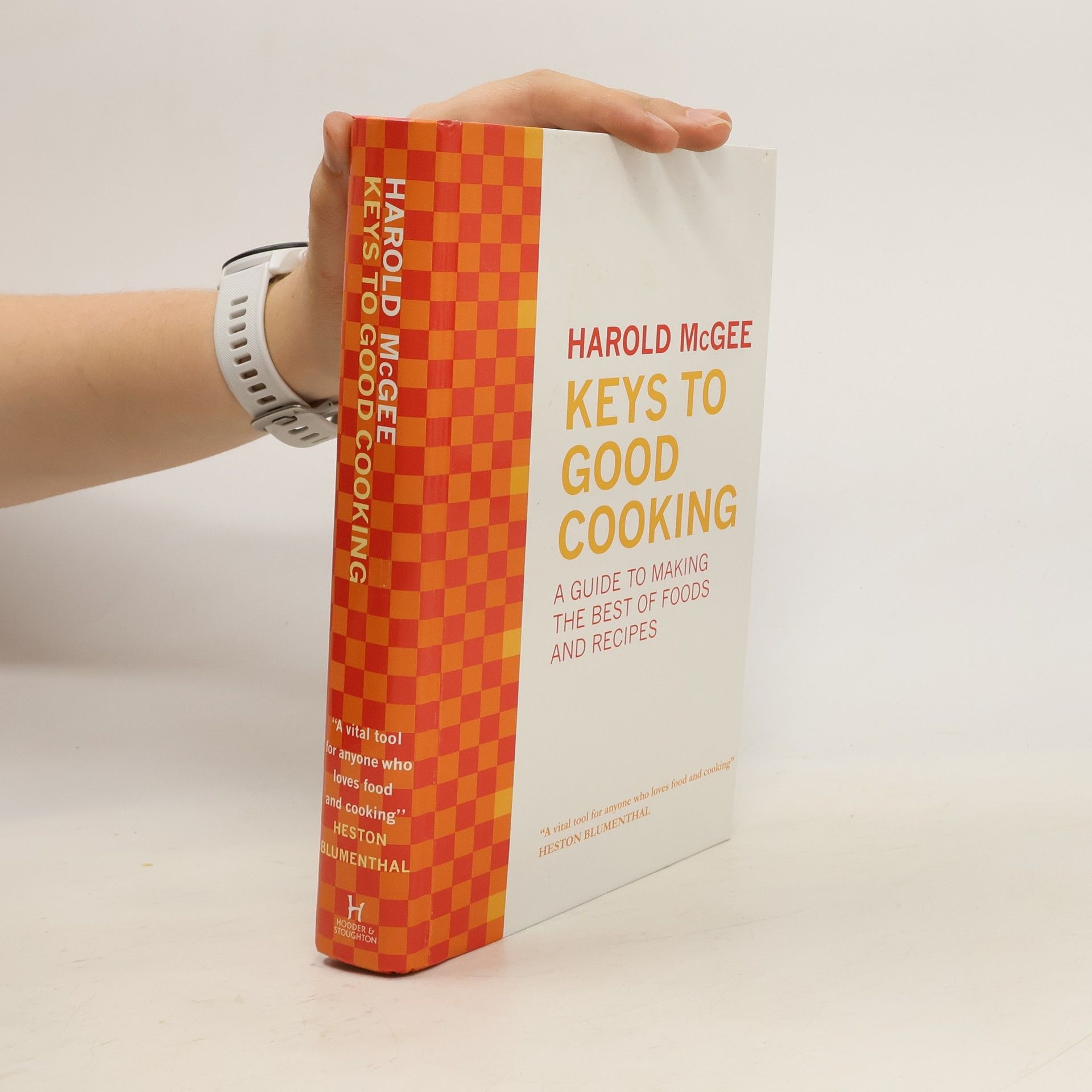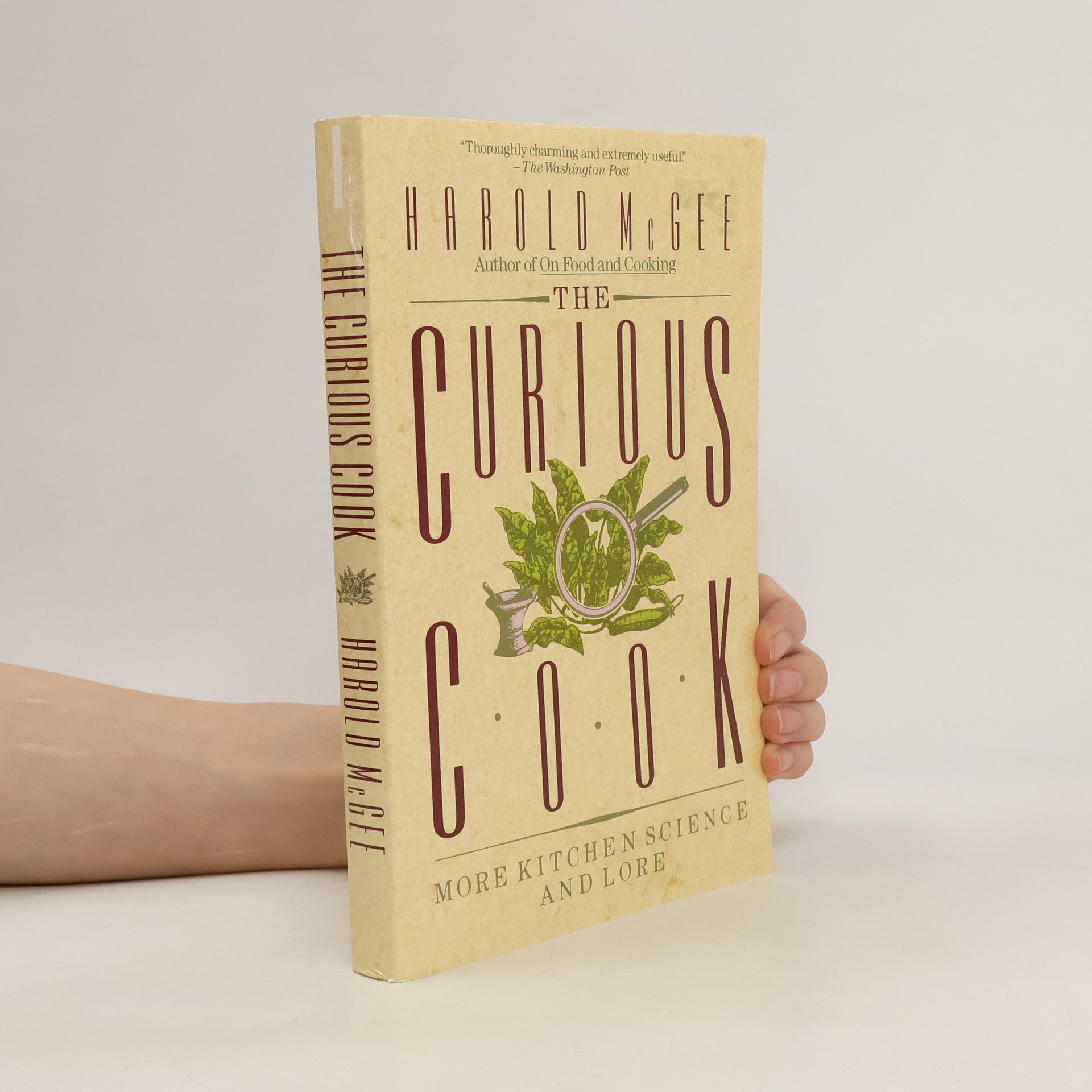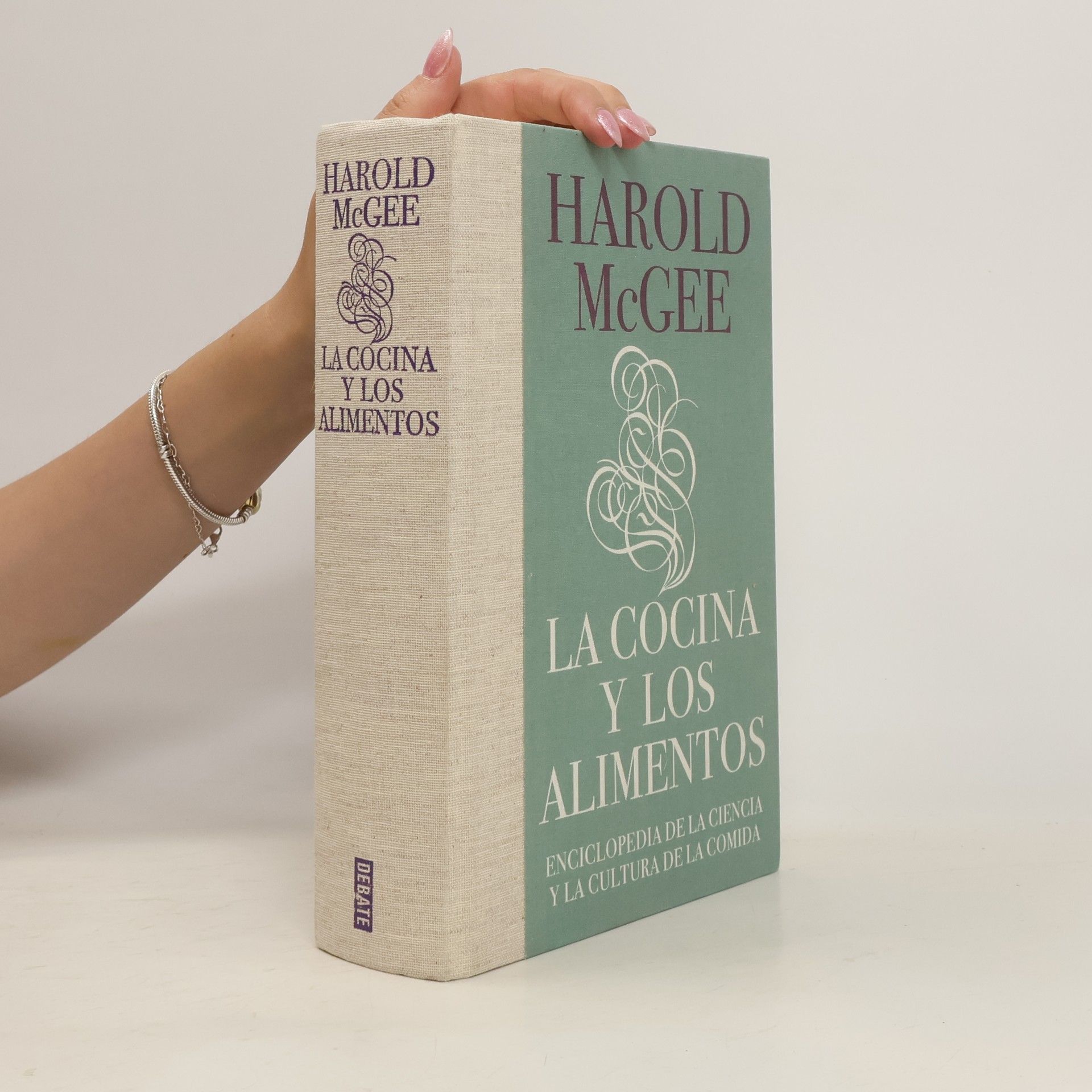Una guía completa sobre gastronomía que explora el origen de los alimentos, su transformación y técnicas culinarias. Organizada como un diccionario, incluye información sobre ingredientes, evolución de la gastronomía y reacciones al cocinar. Prologada por Andoni Adúriz, es un clásico esencial para gourmets.
Harold McGee Libros
Harold James McGee es un autor estadounidense que explora la química y la historia de la ciencia alimentaria y la cocina. Su obra examina técnicas culinarias e ingredientes con una profunda comprensión científica, entrelazando el contexto histórico con el descubrimiento moderno. El enfoque de McGee revela las fascinantes historias detrás de los platos cotidianos, inspirando tanto a lectores como a chefs profesionales a ver la cocina bajo una nueva luz. Sus escritos se han convertido en fundamentales para muchos en el campo de la ciencia culinaria y la gastronomía.






The Curious Cook
More Kitchen Science and Lore
When Harold McGee's On Food and Cooking was published in 1984, it proved to be one of the sleepers of the year, eventually going through eight hardcover printings. It was hailed as a minor masterpiece" and reviewers around the world prasied McGee for writing the first book for the home cook that translated into plain English what scientist had discovered about our foods. Like why chefs beat eggs whites in copper bowls and why onions make us cry."
Nose Dive
- 688 páginas
- 25 horas de lectura
An authoritative guide to taste and our senses from world-renowned foodwriter, Harold McGee.
Nose Dive: A Field Guide to the World's Smells
- 688 páginas
- 25 horas de lectura
"Smell is such a powerful and revealing sense because it detects actual little pieces of things in the world. It gives us direct evidence of what those things are made of-unlike the indirectness of vision or hearing, which register light waves and air movements. Those little pieces are volatile molecules, so little that they're able to break away from their source and fly invisibly through the air to reach our nose. To begin to understand a thing's smell, then, is to identify the many volatile molecules it emits. Its overall smell is a composite, created by the component smells or "notes" of its most prominent volatile molecules. When different things seem to echo each other with shared component smells, it's a sign that those things have some volatile molecules in common. And the chemical identities of the molecules are keys to why they're there. They're tokens of the processes that created them. Text and 200 tables cover this topic, in a book by an expert on the chemistry and history of food science and cooking"-- Provided by publisher
"A vital tool for anyone who loves food and cooking" Heston Blumenthal There's no shortage of recipes available today and Keys to Good Cooking will help you make the most of them by telling you what works, and why. Written by award-winning author Harold McGee, this book acts as a companion to your recipe books, providing answers to all your kitchen questions - How do I prevent my sauce from separating? At what point should I salt meat? What are the benefits of cooking 'en papillotte'? - and distils modern scientific understanding of cooking into quick and reliable guidance. Easy-to-use and authoritative, Keys to Good Cooking is a guide to the techniques, ingredients and gadgets with which you turn recipes into delicious meals.
Harold McGees „On Food and Cooking“ ist ein umfassendes Standardwerk zur Küchenwissenschaft, das die Grundlagen der Molekularküche erklärt. Die aktualisierte deutsche Ausgabe bietet Informationen zu Herkunft, Geschichte und chemischem Aufbau von Lebensmitteln, ergänzt durch praktische Tipps und theoretische Erklärungen. Ideal für Profis und Hobby-Köche.